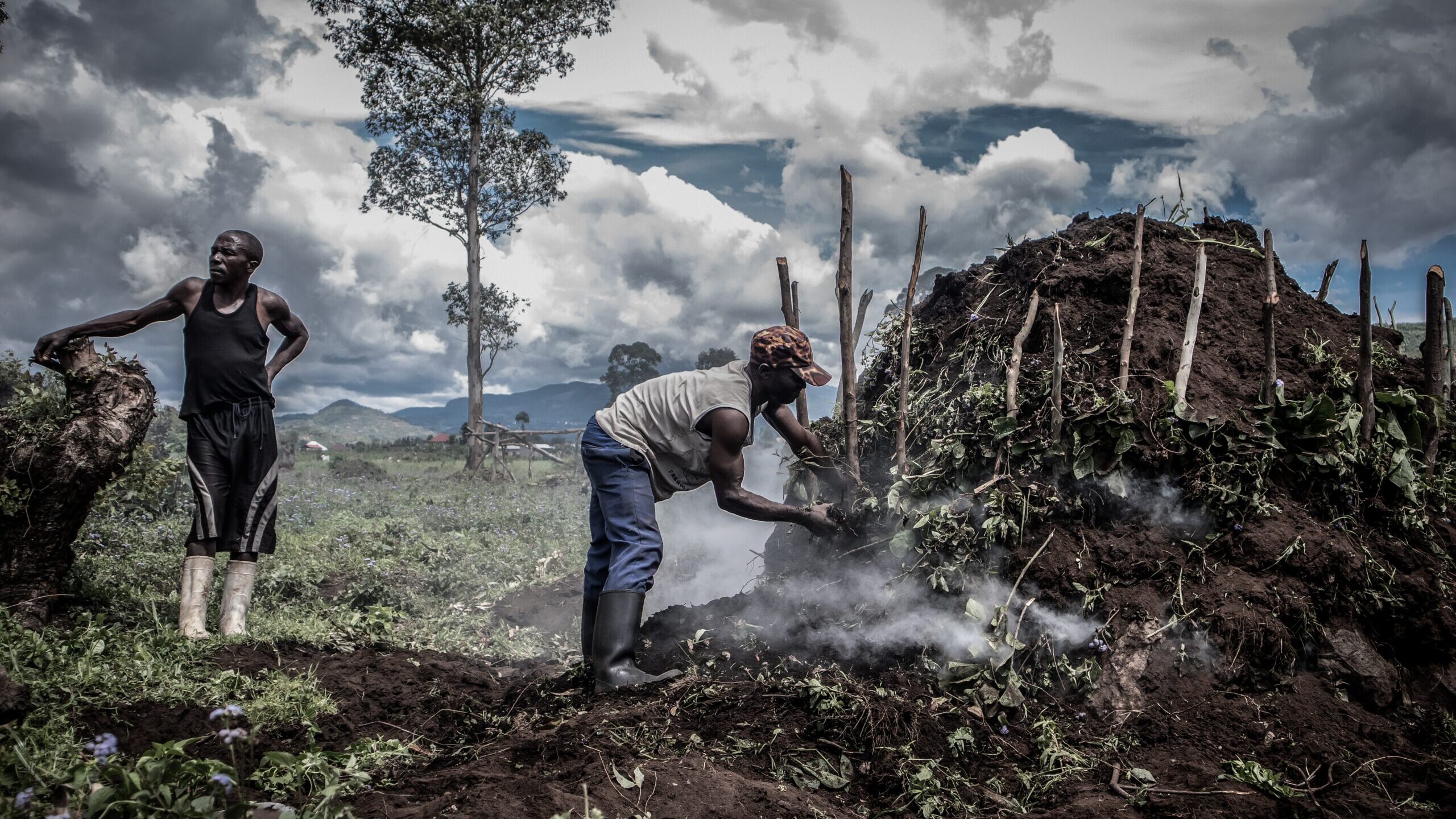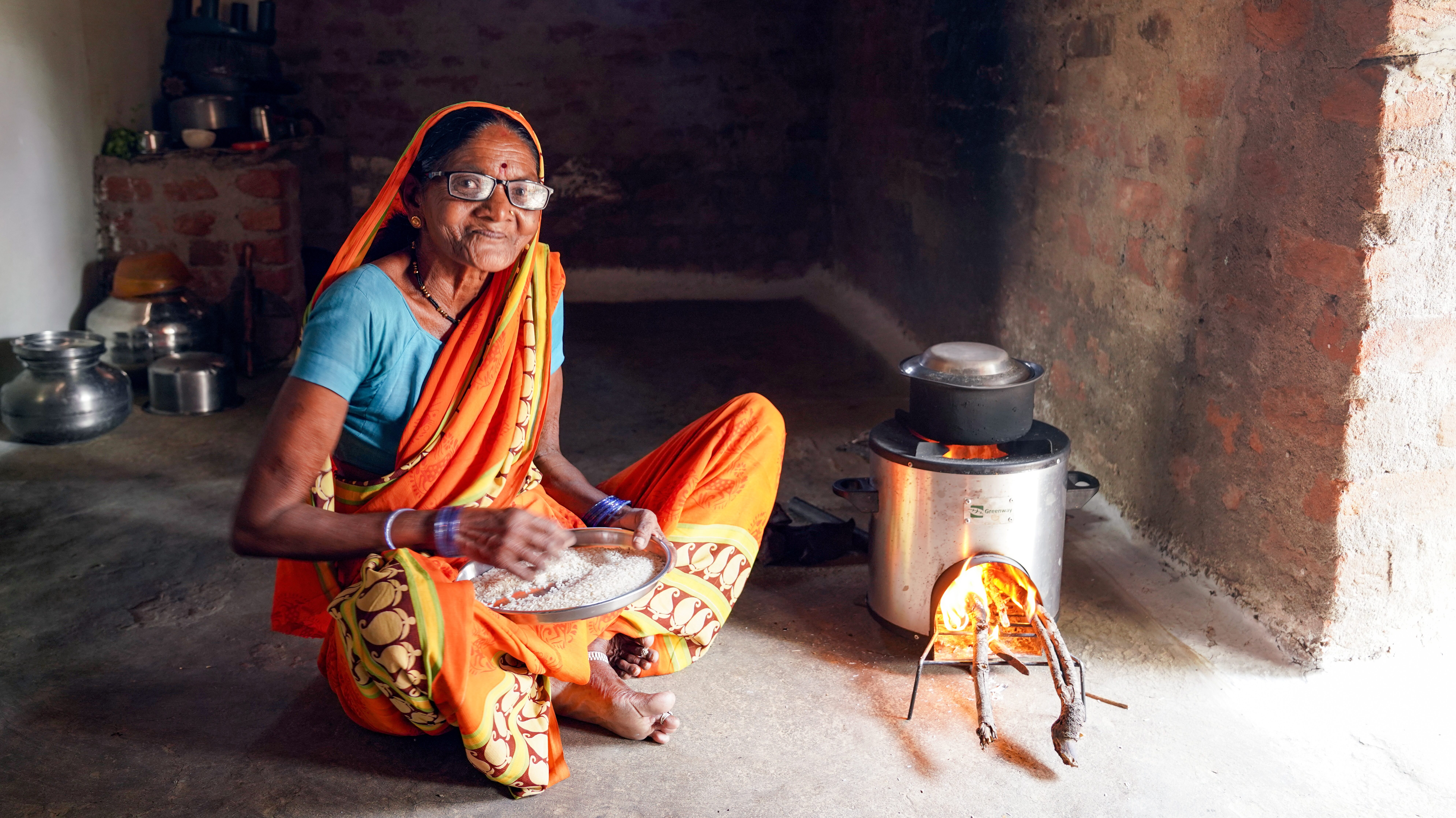Fueling a Sustainable Future: The Importance of Clean Cooking for a Healthy Environment
As we celebrate World Environment Day, it is crucial to reflect on the significance of clean cooking in promoting a clean and healthy environment. While there is much, rightful focus on renewable energy, waste management, and conservation efforts, the impact of our daily cooking practices often goes unnoticed. However, the way we cook our meals can have far-reaching consequences on the environment, our health and the overall sustainability of our planet.
Traditional cooking methods in many regions of the world, particularly in low- and middle-income countries, involve the use of solid fuels such as wood and charcoal. These fuels are burned inefficiently in open fires or rudimentary cookstoves, leading to the release of harmful pollutants and greenhouse gases. Today, 2.4 billion people cook this way, costing the world more than US$2.4 trillion in damage to the climate and local economies and contributing to 3.2 million premature deaths each year. The consequences of these practices extend even further beyond health hazards and climate change; they also have a profound impact on natural ecosystems. If we have any hope of meeting our global climate, biodiversity and sustainable development targets, we must urgently expand access to clean cooking solutions. Air Pollution, Climate Change and Ecosystem Health
Air Pollution, Climate Change and Ecosystem Health
Approximately 30% of global greenhouse gas (GHG) emissions from forest degradation are derived from woodfuel harvest. In total, emissions from non-renewable woodfuels for cooking amount to 1 GtCO2 e per year — about 2% of global emissions and up to 4.3% of total emissions in the pan-tropical regions, and roughly on a par with emissions from the aviation sector. These include both carbon dioxide (CO2) and short-lived pollutants like black carbon, which has a warming impact on climate that is up to 1,500 times as strong as that of CO2. As global temperatures rise, ecosystems face unprecedented challenges, including altered rainfall patterns, increased frequency of extreme weather events, and habitat degradation. Biodiversity loss is intricately connected to climate change, as many species struggle to adapt or migrate in response to changing environmental conditions.
Traditional cookstoves emit significant amounts of smoke and pollutants, including particulate matter, carbon monoxide, and volatile organic compounds. This pollution not only affects the health of individuals, particularly women and children who spend more time around the cooking area, but it also harms nearby ecosystems. Pollutants settle on vegetation, soil, and water bodies, contaminating them and disrupting the delicate balance of ecosystems. The impact on insects, birds, and other wildlife can be devastating, with far-reaching consequences for biodiversity.
Accelerating the transition to clean cooking technologies, such as improved cookstoves and clean fuels, can bring significant benefits. Clean, efficient stoves are designed to burn fuel more efficiently, reducing fuel consumption and emissions and the use of sustainable fuels like biogas, liquefied petroleum gas (LPG), and electric cooking can minimize forest degradation, decrease air pollution, and mitigate climate change impacts. These efforts not only enhance the health and livelihoods of individuals but also create opportunities for nature to recover and thrive. Forest Degradation and Habitat Loss
Forest Degradation and Habitat Loss
One of the primary drivers of forest degradation is the unsustainable collection of wood and production of charcoal for cooking. Up to 34% of woodfuel harvested is unsustainable (where harvest exceeds incremental growth) and more than 275 million people live in “hot spots,” where over 50% of woodfuel harvest is unsustainable. Globally, unsustainable harvesting and incomplete biomass combustion contribute an estimated 1.9–2.3% of global emissions.
The share of emissions from woodfuel for many of the countries in these hot spots can be sizable, in some cases the largest single source of emissions. In 12 nations — Belize, Burundi, Eritrea, Ethiopia, Guinea-Bissau, Haiti, Kenya, Lesotho, Liberia, Nepal, Rwanda, and Uganda — emissions from woodfuels are estimated to account for more than 50% of the country’s total emissions. The destruction and degradation of diverse tropical forests have significant consequences for global climate change, biodiversity loss, and human well-being.
As forests are degraded, countless species lose their natural habitats, disrupting entire ecosystems. Forest degradation not only reduces the availability of essential resources for local communities but also threatens the survival of numerous plant and animal species, leading to a decline in biodiversity. The removal of trees leads to soil erosion, can increase water temperature by up to 4oC, and lowers oxygen levels in streams. This in turn depletes aquatic fauna, reduces water quality for local wildlife and communities, increases sediment by up to 550 times, and enhances the risks of landslides and flooding. Women and children can spend up to 10 hours each week gathering fuel, walking ever-greater distances and carrying heavy loads due to forest degradation.
Empowering Communities and Sustainable Development
Clean cooking is not only about environmental benefits but also about empowering communities and fostering sustainable development. Access to clean cooking technologies and fuels improves the quality of life and resilience for millions of individuals, particularly those living in energy poverty and those most vulnerable to the impacts of climate change.
Clean cooking solutions save time and enhance productivity, especially for women and girls who are primarily responsible for cooking in many households. Traditional cooking methods, such as gathering firewood and cooking over open fires, often require extensive time and physical effort. With clean cooking technologies, such as improved cookstoves or access to clean fuels like biogas or LPG, cooking becomes more efficient and less time-consuming. This allows individuals, particularly women, to allocate their time and energy to other productive activities, including education and income generation or community initiatives, leading to improved livelihoods and greater self-reliance.
Further, clean cooking solutions create economic opportunities and promote entrepreneurship within communities. Clean cooking initiatives often involve the establishment of local production centers or distribution networks for clean fuels and technologies, stimulating local economies and generating employment opportunities, particularly for women and youth. The production, distribution, and maintenance of clean cooking technologies require a skilled workforce, providing training and job prospects for community members. By engaging in clean cooking enterprises, communities can build economic resilience, reduce dependency on external energy sources, and foster sustainable development from within. Empowered individuals and communities have the ability to drive positive change, transform their circumstances, and contribute to the overall progress of their communities. Scaling Access to Clean Cooking Requires Systemic Solutions and Innovative Financing
Scaling Access to Clean Cooking Requires Systemic Solutions and Innovative Financing
To achieve a rapid shift towards clean cooking, various enabling factors must be addressed. These include raising awareness about the environmental and health impacts of traditional cooking methods, providing access to affordable and clean cooking technologies, supporting the development of sustainable fuel supply chains, and ensuring capacity building and financial support for vulnerable communities. Collaborative efforts from governments, international organizations, NGOs, and the private sector are essential to drive the necessary changes.
The Clean Cooking Alliance’s (CCA) report ‘A Call to Action: Accelerating clean cooking as a nature-based climate solution’, presents the evidence base for the fundamental role of clean cooking in delivering and achieving the benefits of nature-based climate solutions. It highlights the role of conservation organizations and clean cooking enterprises leveraging clean cooking value chains to deliver sustainable development to ensure long-term success of nature-based solutions.
CCA is working to facilitate partnerships that are committed to accelerating large-scale, sustainable clean cooking transitions aligned with environmental conservation and nature-based solutions programs. Together, CCA and partners will seek to collaborate on the design, financing and implementation of landscape-scale clean cooking transitions that enhance conservation and restoration efforts, protect of biodiversity, deliver climate change mitigation, provide alternatives to deforestation, and contribute to poverty reduction, improved health and gender equality, and sustainable livelihoods.
With environmental degradation and biodiversity loss occurring faster than at any time in human history, the urgency to accelerate the transition to clean cooking practices cannot be overstated.
